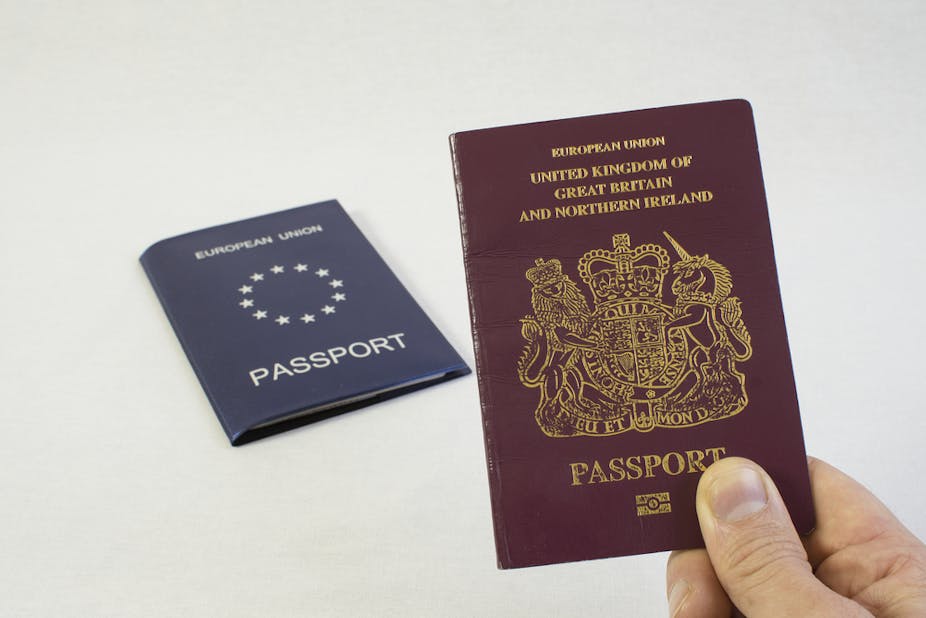One of the major implications of leaving the European Union for British nationals is the loss of EU citizenship. British nationals will no longer be able to enjoy the right to free movement within the EU or the right to live in any member state. They will also lose the right to equal treatment in other EU member states on the same terms as nationals of those countries.
In principle, the UK government could reach an agreement with the EU which will allow British citizens living elsewhere in the EU to continue to enjoy their current rights and offer a reciprocal arrangement for EU nationals who live and work in the UK.
One of the possibilities would be to provide British nationals who want to remain part of the European project with associate EU citizenship, an idea which has been proposed by a liberal MEP from Luxembourg, Charles Goerens. If accepted by the European Parliament, it could enable British nationals who opt for the new status to continue to travel and reside freely within the European Union.
Both the British prime minister Theresa May and the president of the EU Council, Donald Tusk, have stressed that clarifying the status of both EU citizens living in the UK and British citizens elsewhere in Europe will be top priority as Brexit negotiations begin. Until then, many face uncertainty – and are angered at being used as bargaining chips.
So it is not surprising that some Britons have tried to take the matter into their own hands by looking for ways to get dual nationality with another member state. There has been some political support for this by the German Green party who called on the German government to fast-track the applications of Britons wishing to become German citizens ahead of Brexit.
Within a few months of the referendum vote in June 2016, there was a surge in applications by Britons for naturalisation in other EU member states. In some straightforward cases, a connection with another member state gives the right to acquire its nationality. For example, British nationals of Irish descent – and anybody born in Northern Ireland – have the right to acquire Irish citizenship. British nationals who are descendants of Jewish World War II German refugees also have the right to acquire German nationality.
Trouble in Spain
Yet, there are different nationality laws across the EU. The UK recognises dual nationality from anywhere in the world. Most other EU member states also accept dual nationality, but not all. Estonia, Latvia, Lithuania and Slovenia do not permit dual nationality. The Netherlands, requires applicants for naturalisation to renounce their previous nationality unless the personal circumstances of the applicant meet a number of exceptions. The same applies to naturalisation in Austria.
Spain recognises dual nationality only with countries with which it has a specific connection: Ibero-American countries, Andorra, the Philippines, Equatorial Guinea and Portugal. Britons applying for Spanish nationality therefore need to renounce their UK nationality. Following naturalisation in Spain, the continued use of UK nationality may lead to loss of Spanish nationality.
Spanish citizens who wish to obtain another nationality, such as those living in the UK, do not face this dilemma. They can have dual nationality if they inform the Spanish authorities of their intention to maintain their Spanish citizenship within three years from the moment they acquire UK nationality. Because of this inequality, an agreement on the status of British nationals in Spain – the country that is home to the largest number of British citizens in the EU – is particularly important to address in the Brexit negotiations.
German dilemma
The national rules on loss of nationality upon acquiring a foreign citizenship are complex and vary from one member state to another. Another potentially complicated situation arises for Britons who want to apply for German nationality. Germany accepts dual nationality only with other member states of the EU. Therefore, while the UK remains an EU member state, UK nationals can apply for German nationality without the need to renounce UK nationality. After Brexit, new applicants will have to give up their UK nationality.
The national laws on dual nationality will also affect applications of nationals of other member states for naturalisation in the UK. Nationals of member states that do not recognise dual nationality could potentially lose their nationality of origin.
All this means that dual nationality is one of the solutions to losing EU citizenship, but it is by no means a substitute for a comprehensive political solution which would allow all affected British nationals to secure their rights in other member states following Brexit.

